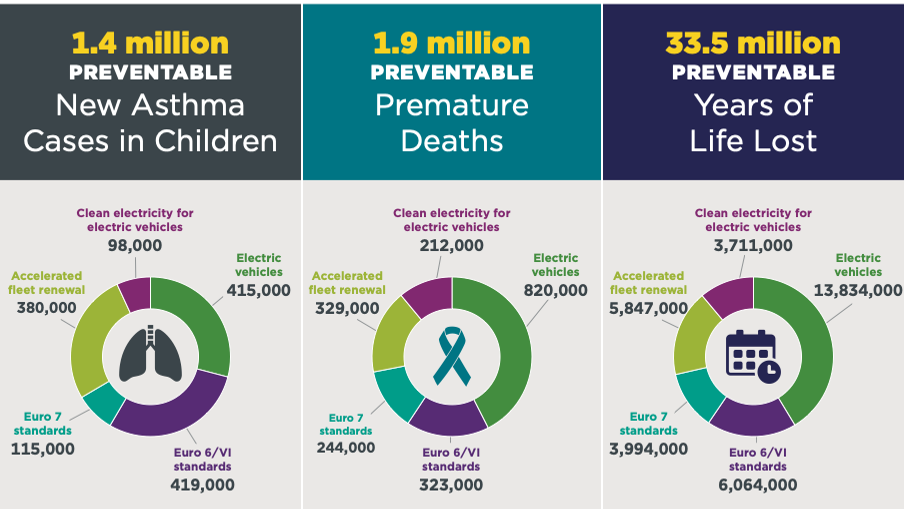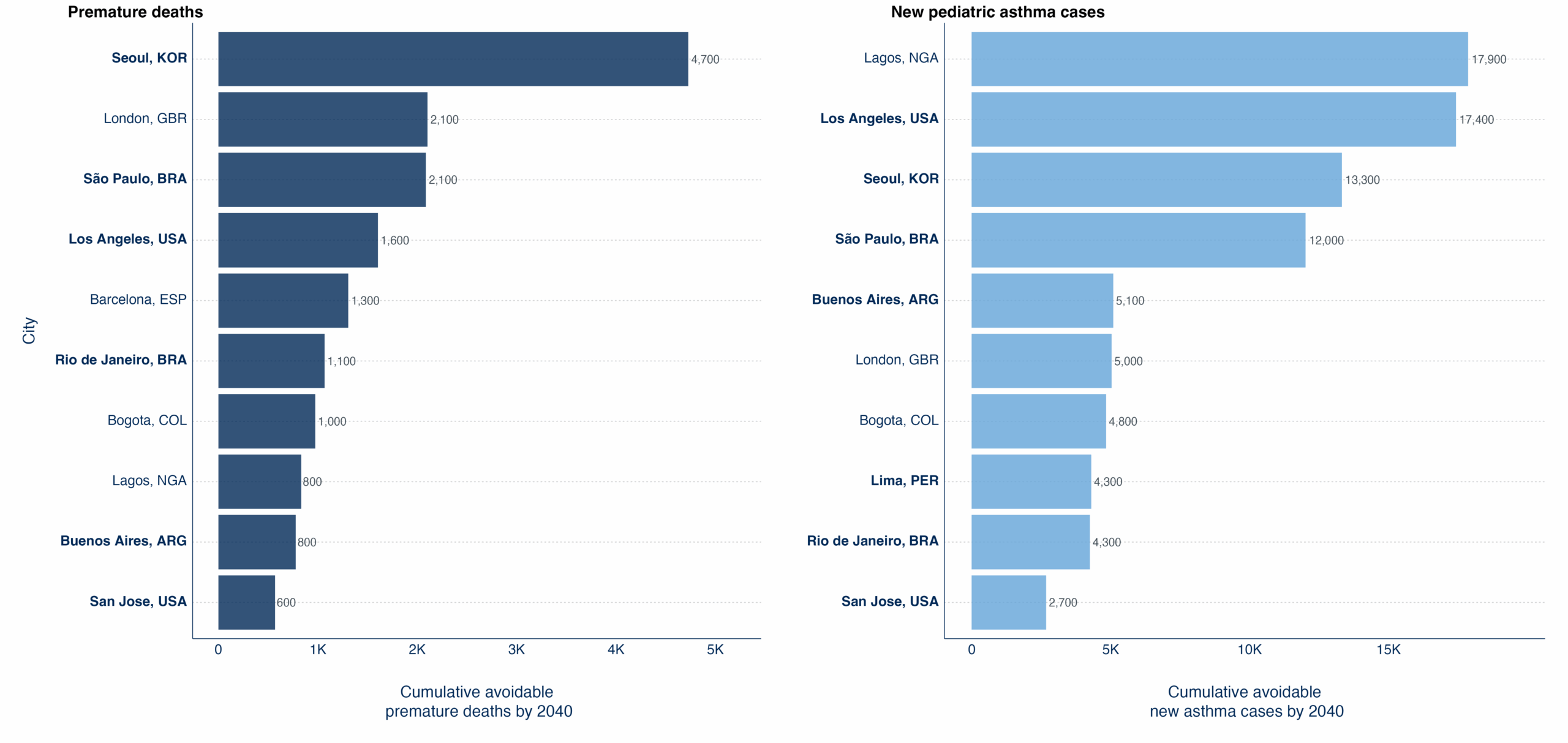Transportation undoubtedly has an impact on climate, and as a community we’re working to meet the goals of the Paris Agreement, but crowded streets and busy highways also have an often unseen impact on public health. Air pollution is the second largest risk factor for premature deaths among adults and children globally, and traffic related air pollution has also been linked to the development and increased severity of asthma in children.
A recent study published in Environmental Research Letters, with research from the A2Z Coalition’s secretariat, the International Council on Clean Transportation, finds that accelerating electric vehicle (EV) adoption is one of the most powerful levers to reduce the health impacts from road transport globally.
Countries, cities, and states that have signed the ZEV Declaration and pledged their commitment towards an electric future are also improving the health of their citizens by accelerating EV adoption.
Accelerated EV adoption, in combination with other smart policies is key
The study modeled various policy scenarios aimed at decreasing road transport emissions, individually and in combination, to quantify their potential to reduce the public health impacts of vehicle emissions. At the global level, the study revealed that a smart combination of policies could prevent 1.9 million premature deaths and 1.4 million new children’s asthma cases through 2040.
These policies include a combination of:
x
- Increasing EV adoption – transitioning to battery and fuel cell EVs for both new vehicle sales and used vehicle imports
- Clean electricity to power EVs – ensuring EVs don’t increase overall grid emissions
- Accelerating fleet renewal – removing the dirtiest vehicles from the roads today through scrappage programs or other policies
- Adopting world-class emission standards – strengthening standards to match Euro 6/VI or Euro 7 levels
Global health benefits of policies to reduce road transport pollution

Achieving these benefits will require action at all levels of government—including cities. Across the 13,000 urban areas studied in the paper, these five policy levers, if implemented, could save 730,000 lives and prevent nearly 1 million new children’s asthma cases through 2040 in cities around the world.
Subnational signatories have great potential to improve the health of their citizens
The ZEV Declaration today has 80 subnational signatories, ranging from cities to states. Collectively, these subnational signatories are home to several hundred million people, about half of whom live in cities or metropolitan regions that have signed the ZEV Declaration.
Among the cities with the greatest potential health benefits associated with accelerating EV uptake alongside other smart policies, the top 10 could prevent more than 16,000 premature deaths and 86,000 new asthma cases in children through 2040. These jurisdictions, which include the likes of Seoul, Lagos, London, Los Angeles, and São Paulo, span five continents and represent a wide array of political and economic landscapes.
Top ten city* signatories to the ZEV Declaration with the greatest potential to avoid premature deaths and new pediatric asthma cases under an accelerated EV transition in combination with other smart policies

*The boundaries of urban areas quantified in the ERL study may not perfectly match the jurisdictions of these A2Z signatories. (The area covered may be larger or smaller.)
While cities alone can’t solve the problem of air pollution from road transport, they are important in showing the rest of the country what works. When cities act as first-movers with ambitious policies, including clean-air zones, public EV procurement, and other policies to accelerate EV adoption, they can lay the groundwork for national level policy.
Seoul, São Paulo, Rio de Janeiro, Buenos Aires, Lima, Los Angeles and San Jose, indicated in bold above, are already leading the charge, having committed to the ZEV Declaration ahead of their nation. Not only are these cities showing commitment to an accelerated ZEV transition, but they are also laying the groundwork to lengthen and improve the lives of their citizens.

